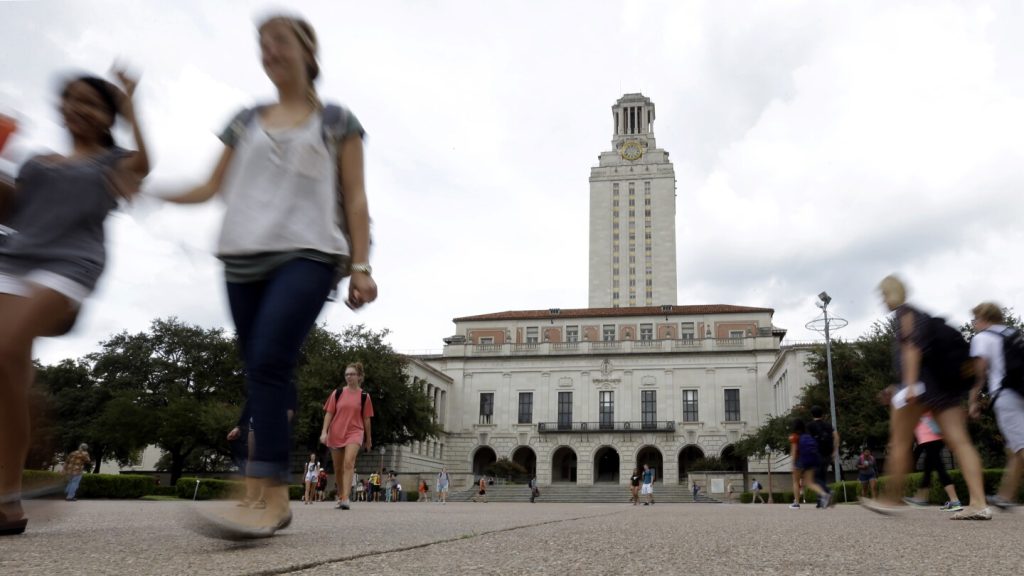A ban on diversity, equity, and inclusion (DEI) initiatives in higher education in Texas has resulted in over 100 job cuts across university campuses in the state, echoing similar actions in other states. The law, signed by Republican Governor Greg Abbott last year, went into effect on January 1, leading universities to make changes to comply. More than 60 staff members were terminated at the University of Texas at Austin, with additional positions eliminated at other institutions such as Texas A&M University, Texas Tech University, and others. The law prohibits training and activities related to race, color, ethnicity, gender identity, or sexual orientation.
In response to the ban on DEI initiatives, various universities in Texas have made significant changes, including University of Texas officials announcing the closure of the Division of Campus and Community Engagement. The ban prohibits staff members from making hiring decisions based on race, sex, color, or ethnicity, and prohibits preferential treatment based on these categories. This has led to the termination of faculty and staff members who were involved in DEI initiatives. The impact of the law has been felt across the state, with job cuts and restructuring occurring at multiple universities.
Republican lawmakers who oppose DEI programs argue that they are discriminatory and promote left-wing ideology. They believe that such programs are not necessary and are pushing for legislation to restrict or ban them in various states. Democratic supporters of DEI initiatives argue that they are essential to meet the needs of diverse student populations. Lawmakers from the Democratic party have filed bills in multiple states to promote DEI initiatives, highlighting the ongoing debate over the role of these programs in higher education.
The anti-DEI law in Texas has had a significant impact on faculty and staff members working in DEI-related roles. Professor Aquasia Shaw, who taught courses on sociology, sports, and cultural studies at the University of Texas at Austin, was not given a reason for the termination of her contract. Shaw, who focused on diversity, inclusion, and social justice in her teaching, was surprised by the decision and suspects it was influenced by the new law. Republican Senator Brandon Creighton, who authored the law, has called for public university boards of regents to testify on the changes made to comply with the legislation.
The ban on DEI initiatives in Texas is part of a broader trend across the country, with multiple states passing similar legislation and more considering it. Florida was the first state to implement a ban on DEI programs, with other states following suit. The debate over the role of DEI initiatives in higher education continues to be a contentious issue, with differing perspectives on the necessity and impact of such programs. The job cuts and restructuring in Texas universities serve as a reflection of the ongoing debate and the consequences of anti-DEI legislation in higher education.















